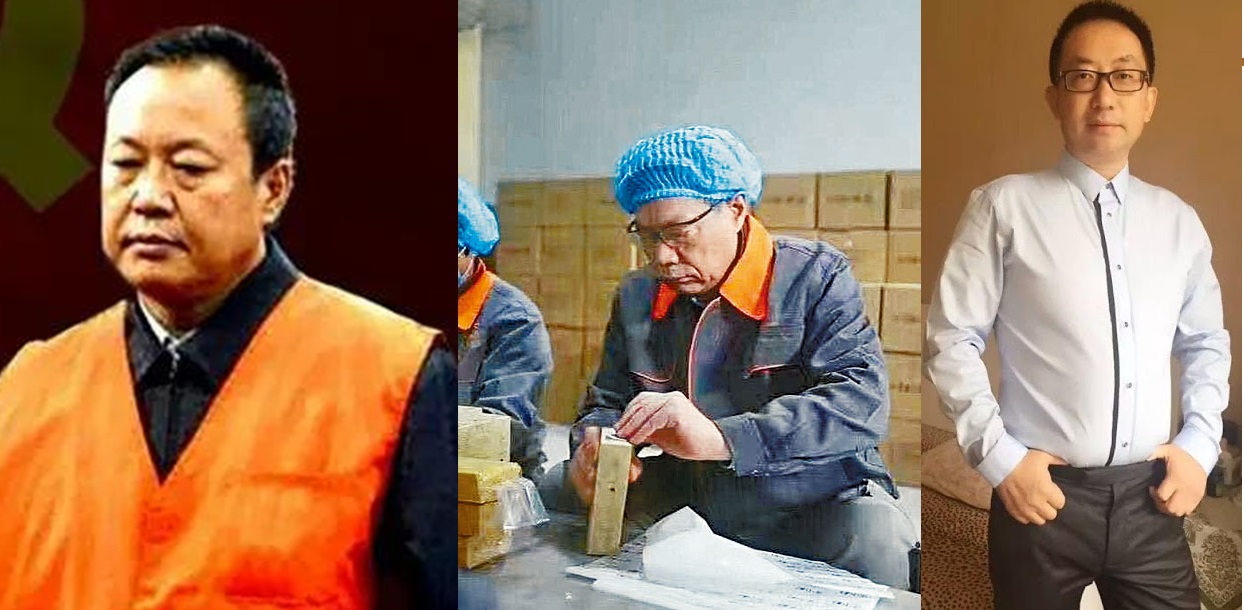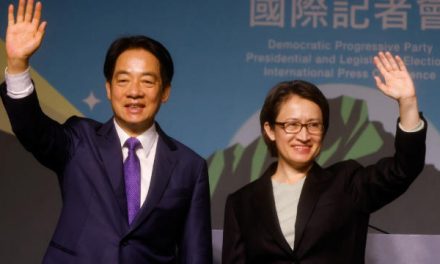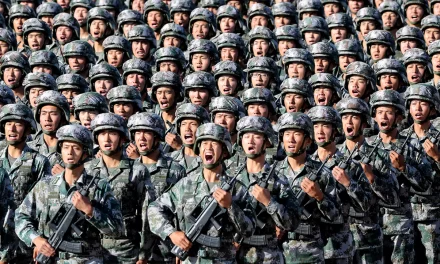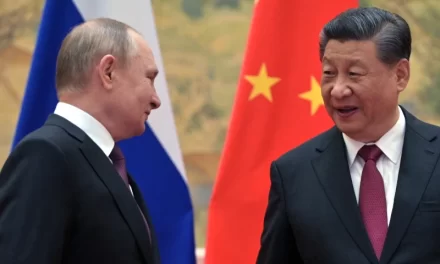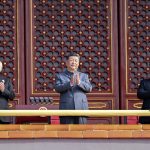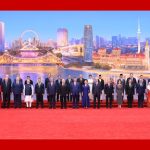By Wang Qingmin Oct 9, 2024
Recently, a letter from the daughter of Ren Zhiqiang to Chinese Communist Party General Secretary Xi Jinping circulated on the Internet, requesting that Xi allow Ren, who is in prison and is seriously ill, be paroled and allowed to go abroad for medical treatment. According to various sources, Ren is indeed in poor condition.
Ren Zhiqiang is a Chinese entrepreneur who once served as general manager of a state-owned enterprise and often criticized shortcomings in Chinese society. In 2020, he was arrested for criticizing Xi Jinping as “a clown who takes off his clothes and wants to be an emperor.” He was later sentenced to 18 years in prison on charges of corruption and misappropriation of public funds.
Apart from Ren Zhiqiang, there have been only a handful of entrepreneurs who are also enthusiastic about politics or are critical of the system, and who participate in civil struggles and enlighten the public in various ways. The more well-known ones include Wang Gongquan, Sun Dawu, Li Huaiqing, and Wang Anna. Among them, Li Huaiqing was sentenced to 20 years by the CCP for “inciting subversion of state power.” Sun Dawu was sentenced to 18 years for “gathering a crowd to attack state organs” and “picking quarrels and provoking trouble.” Wang Gongquan has been silent since 2014, while Wang Anna went into exile and then founded Photon Media. The reason why there are so few well-known entrepreneurs who dare to resist is actually quite simple: if you want to do business in China, the CCP can stop you at any time. Therefore, even if some entrepreneurs support freedom and democracy, they can only help covertly, fearing that the Chinese Communist authorities will find out.
There are also other entrepreneurs who have suffered persecution, such as Lan Shili, Gu Chujun, Chu Shijian, Mou Zhi, etc. But what these entrepreneurs mainly care about is their own property and status, and they do not have the spirit and motivation to go beyond personal self-interest, to care about the suffering of the people, to be willing to pay real money for democracy and human rights, and who hope to change this dark world.
And many Chinese entrepreneurs have no concept of public consciousness and civil rights at all. On the one hand, they are only profit-seeking and do whatever it takes to make profits. On the other, they are indifferent and cautious about public affairs and political topics. For them silence is golden, but this is unfair to society. Such people never speak out to criticize, and show no concern for the sufferings of the masses. For these businessmen, luxury cars, villas, beautiful women, gold and silver are the pursuits of life and the focus of their thoughts.
Entrepreneurs’ unique advantages and huge influence in resisting the CCP’s totalitarianism
In such an environment, the moral character, civic awareness, courage to fight, and practical ability of Ren Zhiqiang, Wang Gongquan and others are even more worthy of admiration. They used their status and resources as entrepreneurs to do many things that others (including human-rights lawyers, scholars, media people, and other people of all identities) were unable to do, but which were urgently needed. Examples included convening scholars and celebrities from all walks of life to hold forums on important issues, establishing citizens’ organizations to face real-life hot-button issues, and establishing media platforms to promote and enlighten the public. These are all possible only with strong financial resources and extensive connections.
Some entrepreneurs with charisma and social skill can directly lead many people to participate, if they themselves do so, in citizen movements. For example, Sun Dawu relied on his upright character and hard-working spirit to make many relatives, friends, and corporate employees willing to work with him to fight against violent law enforcement and to protect factories and stores. This is something that most people cannot do, but entrepreneurs can because of their status.
In addition, since entrepreneurs need to deal with government departments over the long term and hence make friends with various officials, civil servants, public prosecutors and legal personnel, they understand China’s various political insiders, unspoken rules, and its dark side better than most people. They also understand the core of Chinese society better and know more about how to facilitate system change. Entrepreneurs travel widely, have a great deal of knowledge, have money and leisure, and read widely. Their ability or potential to judge and make decisions and lead social change is significantly stronger than those of ordinary people. If the country transitions, these entrepreneurs are likely to become political leaders and play an important role in transition and democracy.
Thus, entrepreneurs have many unique advantages in participating in civil movements and political protests. If they are willing to participate, they will often have huge influence. And if they use their financial resources, connections, and experience to assist civil-rights activists, they can exponentially amplify the effectiveness of these activists’ struggle.
Why entrepreneurs must care about public affairs and participate in politics: the CCP’s brutal persecution, deprivation of personal freedom and property, and overall danger to their interests
At the same time, entrepreneurs’ participation in politics also reflects their need to safeguard their own interests. For entrepreneurs, a stable and orderly social environment, a business environment subject to the rule of law, and protection of private property and personal safety are the prerequisites for maintaining investment and business confidence. In China, these are all lacking, so entrepreneurs have no choice but to risk going to jail at any time as they share the spoils with officials. But this is ultimately unsafe and unstable. Most entrepreneurs long for a normal business environment, rather than taking excessive political risks and participating in various illegal activities. Entrepreneurs have suffered greatly from the CCP’s authoritarianism and ruthless expropriation, and they have more motivation to change China’s political and economic reality.
In other countries, it is normal for entrepreneurs to engage in politics and choose to support some political parties and politicians. With regard to the 2024 U.S. election, major U.S. companies are donating money and promoting the political parties and candidates they support. For example, the well-known entrepreneur Elon Musk has recently supported the Republican Party and Republican candidates Donald Trump and J.D. Vance. Russian oligarchs, Japanese and Korean chaebols, and rich people in India and other countries are all deeply involved in politics. There are pros and cons for entrepreneurs participating in politics, but participation itself is necessary. Their participation is also a fulfillment of their civic obligations.
But as noted above, in China’s corporate world, except for a very small number of people, there are very few entrepreneurs who have the ideals and motivation to contribute to civil movements and political struggles. This is unfortunate and even sad. The CCP system is the root cause of restricting Chinese entrepreneurs from participating in politics normally, but this should also stimulate their desire and motivation to resist the CCP and change this reality.
The Chinese business class almost disappeared during the Mao Zedong era. During the era of reform and openness, many people took the opportunity to get rich through various means and became the top 1% of Chinese society in terms of wealth. However, they lack political rights and are often exploited by officials, all the way down to petty local ones. Their personal and property safety is insecure. Compared to the common people, these businessmen are superior people to those with vested interests. But compared to officials, they are slaves and “Tang Monk meat” [the consumption of which was sometimes thought in the past to promote eternal youth]. Many businessmen were forced to find officials to serve as protective umbrellas for them and in return to share their profits with them. However, this kind of relationship between government and business is obviously unhealthy and unstable. Once any if these officials are dismissed, the associated businessmen will also suffer an unfortunate fate.
Although business elites “within the system” like Ren Zhiqiang are generally relatively safe and often respected by all parties, they must abide by various precepts. They can only make their fortunes quietly and cannot interfere in politics or leak internal secrets and other information. They are unable to participate in public affairs independently, nor to collaborate with powerful groups. People with a true conscience will not tolerate such rules or such a system. The powerful red businessmen within that system also have to face competition from other powerful people, and there is also a cruel struggle between them in which the big fish end up eating the small fish. For example, Chen Xiaolu, the son of Chen Yi, who was in charge of Anbang Group, had his company taken over by force before his death, which was in fact indirectly stimulated by this. Such is representative of the fierce infighting among the powerful. Moreover, if there is no decoupling from or and rebellion within the system, the chances of overthrowing the regime will likely be affected, extinguished even.
Therefore, the business class, including Chinese entrepreneurs, whether inside or outside the system, whether for reasons upright or not, even for motives of protecting personal safety and interests, should resist the current system, participate in citizens’ movements, and promote China’s democratic constitutional governance. Ren Zhiqiang, Wang Gongquan, Sun Dawu, Li Huaiqing, and Wang Anna are role models. Although their efforts led to brutal retaliation, and both Ren Zhiqiang and Sun Dawu were sentenced to 18 years in prison, this reflects the Xi Jinping regime’s fear of entrepreneurial resistance and thus the importance of entrepreneurs.
Currently, when businessmen do not resist, or only resist when it comes to their personal interests, many of them end up being tortured, sentenced, separated from their wives, and their businesses confiscated, anyway. For example, Hunan businessman Zeng Chengjie was sentenced to death in 2010 for his involvement in illegal fund-raising (although whether it was actually illegal and the extent of the crime was controversial). After being sentenced to death, he was shot in 2013. And because of involvement in collusion between government and businessmen and various other gray areas, countless entrepreneurs have been imprisoned. Even businessmen outside mainland China proper are not immune. For example, Hong Kong businessman Liu Xiyong was tortured to death by officers of the Jilin Procuratorate [the CCP’s prosecutorial agency] during an interrogation process to extract a confession from him. Those businessmen who have yet to be imprisoned also live in constant fear.
Private entrepreneurs also face unfair competition and pressure from those in state-owned enterprises within the system and so-called “red-hat businessmen” who have close ties with the powerful. For example, entrepreneurs are accused of “illegal fund-raising” and “non-repayment of debts.” To a large extent, it is because private enterprises cannot receive preferential policies and loan support like state-owned enterprises, so they have to raise funds from the private sector. And once the capital sources are disrupted, they will not get the same support as those with such relationships in their background. Some private entrepreneurs are cautious and profitable in their operations, but they are in the end targeted by powerful officials or state-owned enterprises. These latter work together to destroy them, and the industries they had worked so hard to develop are taken over.
Chinese entrepreneurs should not seek the “coat of the tigers.” Only by resisting autocracy and creating democratic, constitutional government can they achieve long-term security
Since this is the fate even of entrepreneurs who endure and remain silent, wouldn’t it be worthwhile to fight for the people of the country? At the end of the Qing Dynasty and the beginning of the Republic of China, many Chinese entrepreneurs (or overseas Chinese entrepreneurs) such as Zhang Jian, Lu Zuofu, Hou Debang, Tan Kah Kee invested in the trend of “industry to save the country” and donated their own funds to overthrow the autocratic dictatorship at home and fight against foreign aggression via their factories, mines, and lives, playing a huge role in China’s democratic revolution and economic development. Although the achievements of saving the country through industry were exploited and destroyed by the CCP after 1949, the entrepreneurial spirit of many Chinese entrepreneurs and businesspeople of that era was patriotic, demonstrated care for the people, and cannot be erased.
In addition, a reason Ren Zhiqiang, Sun Dawu, and Li Huaiqing were severely sentenced, Wang Gongquan had to remain silent, and Wang Anna went into exile overseas was precisely because other entrepreneurs and citizens remained silent. Therefore, these “prominent” people were silenced by the CCP, which did not hesitate to impose heavy sentences. If more entrepreneurs unite with citizens from all walks of life to speak out, Chinese law will be seen as unworthy of support, and the CCP will not dare to arrest and sentence people on a large scale. Even if there are risks, Chinese entrepreneurs and businessmen need to bravely stand up. Compared to the common people, they are still vested interests, enjoying the dividends of reform and openness, and have greater responsibilities than other citizens to care for society, change injustice, and stand up for working people.
In today’s China, with its autocratic dictatorship, the economy is in decline, the people’s livelihood is increasingly difficult, policies are changing rapidly, and yet entrepreneurs are often blamed. The country has reached a time where change is necessary. Entrepreneurs should take advantage of their unique resources and connections to join forces with trustworthy people who are interested in promoting change in China, both for themselves and for the sake of their suffering compatriots, to break with autocracy, attack dictators, and embrace a new future of democratic constitutionalism.
This piece was translated from Yibao Chinese. If republished, please be sure to add the source and link https://www.yibao.net/?p=247911&preview=true before the text when reposting.
The author’s point of view does not necessarily represent that of this journal.

